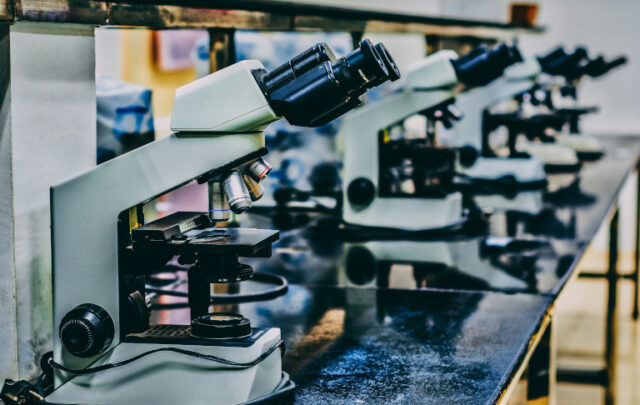Imagine an online cooperative that supports economic equality around the world and is free from state control. This is the vision for Fair.coop. First envisioned by Enric Duran, cofounder of the Catalan Integral Cooperative, Fair.coop is an extension of peer-to-peer values, open cooperation, and hacker ethics. If Fair.coop’s lofty ideals are realized in a concrete way, it could prove revolutionary.
Using Faircoin, a cryptocurrency, Fair.coop’s goal is to reduce inequality as much as possible by using market forces to, as stated on the website, “hack the foreign exchange market by inserting the cooperation virus.”
The main objective of Fair.coop is to provide a means by which collectives in the Global South may receive donations in, and save, Faircoin. As the value of Faircoin increases, so too does the collective wealth of these communities. To start, Fair.coop has been supplied with 10,000,000 Faircoins, which represents 20 percent of total existing coins. The project marks the beginning of a concrete plan to alleviate economic inequity without going through the channels of nation-states. It is driven exclusively by civil society.
Alleviating economic injustice is no small undertaking, to be sure, but as Stacco Troncoso of the P2P Foundation writes, “The punk rock spirit that underlies the Fair.Coop initiative is admirable. Infused with an attitude transcending punk’s DIY ethos and arriving at a DIWO (Do it with Others) position, Fair.Coop has decided to tackle the big picture, reaching out to people and collectives who want practical action to offset the abundance of rhetoric.”
Shareable connected with Duran and Troncoso to find out more about Fair.coop, the relationship between Fair.coop and Faircoin, how people can get involved, and what needs to happen now. The responses below are collaborative.
Shareable: What’s the importance of having a cryptocurrency focused on alleviating economic injustice and promoting social good?
Duran and Troncoso: Up until now, cryptocurrencies have held great potential, but it hasn’t always coincided with a practicality that would alleviate [social] ills. Certain elements such as bypassing the need for central banks are steps along the way, but there was something missing. A holistic social and economic system is urgently needed to address the inequalities inherent in the current system.
How is Faircoin different from other cryptocurrencies?
For one thing, Faircoin is technically different in the currency generation protocol used. Faircoin uses Proof of Stake (POS), instead of Proof of Work (POW). The use of POS prevents any unfair advantage which could be afforded to those who can access and invest in the environmentally destructive means of mining (destructive for its consumption of energy and resources needed for the servers). What really makes Faircoin different is its specific use as a tool for Fair.Coop, as a cryptocurrency designed to act as a store of value for Fair.Coop and its redistribution of capital to socially and environmentally coherent projects.
What’s the importance of Fair.Coop? Can you briefly describe your vision for the coop?
Our long term vision is to create a means for constructing a new social and economic system based on decentralized cooperation, bypassing the need for nation-states and central banks. In the short term, we are creating a space for a real collaborative, commons-oriented economy, mutually generated by projects worldwide and destined for humanity as a whole. We’re compiling the sum of the knowledge distributed among different collectives for a cohesive impact.
What’s the relationship between Fair.Coop and Faircoin? How will they intersect and/or interact?
Our intention is to be “Fair in name, fair in practice.” Fair.Coop uses Faircoin as its social capital and store of value. Fair.Coop is Faircoin’s conscience—it’s a cryptocurrency attached to commons-oriented responsibility.
Fair.Coop already holds 20 percent of all Faircoins in existence, which guarantees that the growth of the currency’s value will go to the common good. This is guaranteed by Fair.Coop’s democratic accountability system
What’s the CIC’s involvement in the project? Is it the driving force behind Fair.Coop and Faircoin?
A lot of the same people are involved with Fair.Coop, but the CIC as an entity is not the central leader or motor for the project. The CIC is an example of one collective attached to local bio-regional realities, but there are many more in the world, which are being united by Fair.Coop. The CIC could be thought of one more local participant, and one of many true peers in the P2P network making up the global Fair.Coop.
Do you see Fair.Coop and Faircoin working on a global scale? What could that look like?
In fact, Fair.Coop can’t be anything but global; it’s been specifically designed to be global; for this reason, we call it the Earth Cooperative. It’s not a scaled-up local project. One of Fair.Coop’s key objectives is to facilitate a global body of knowledge, capable of generating concrete impact locally.
At any rate, we could make a working distinction between two sets of mechanisms that’d be produced by Fair.Coop: global and local. At the local level we’d be seeing local, specialized mechanisms and knowledge which, in turn, would feed into a global open knowledge economy comprised of, among other things, valuable data and monetary and economic tools. This will be a bidirectional relationship, as both parts will nourish one another for the benefit of the whole.
Who will the funds raised with Faircoin go to? Do you already have organizations or projects in mind? If so, where are the organizations located?
Who the funds will go to isn’t something that’s decided by the promoting team. Identifying who the potential benefactors are and following through is an ongoing democratic process of the whole coop, as it’s coming together right now where each of the different Funds is co-managed by a council that works in conjunction with the other Funds, as well as with the entire community built around Fair.Coop.
The type of organizations we want to work with will be those who could potentially generate peer production in the material plane, as well as benefit from the shared knowledge accrued by the coop. We also want to focus on projects that lack the necessary means to activate this type of peer production.
Other examples would include strategic projects that can add more value to the global commons. Projects which, on their own, maybe wouldn’t have the ability to network at this scale to share their knowledge. The projects would also benefit from the moral and material support of a global community if and when attacked by hostile interests. All in all, Fair.Coop will increase the resilience of these projects.
More than naming specific organizations, we are very open to being approached so that everyone can participate in Fair.Coop’s co-creation and ongoing development. We are also very interested in empowering the Global South to increase its resiliency. When we say Global South, while there’s an undeniable geographical truth to this, we also mean the 99%, independent of where we may reside.
What are the biggest challenges or tensions involved with these projects? What unanswered questions are you facing?
The biggest challenge is getting beyond the beginning stages, and growing from a seed project to its full potential. Getting there really means not getting stuck halfway. If it fails, it can always be tried again. Another concern is not achieving a representative selection of existing collectives with knowledge that all can benefit from. A lack of early adopters would also be a concern, we need to attract groups distinct from promoter team.
Regarding unanswered questions, truth be told, we do have some preliminary notions of how we’d answer them, but this is for the various councils to decide and, rather than have them provide final answers, we’d rather see it as an ongoing conversation.
What’s the best way for people to get involved in Fair.Coop and Faircoin?
Getting involved in Faircoin is getting involved in Fair.Coop. Faircoin is a tool, and Fair.Coop is the ongoing organizational process. An interested group or individual can first simply join our social network, and check out the work teams and various commissions. Fair.Coop, despite its technology, is human in essence.
What’s your best-case vision for these connected projects? What would you most like to see happen?
Generally, to make it easier for all collectives related to Fair.Coop to generate and self-sustain post-capitalist, post-growth progress.
Anything you’d like to add?
The project could be misunderstood as another variation on cryptocurrencies, with its own peculiarities etc., but, in fact, Faircoin already existed as a currency. We chose it because it had the necessary qualities to serve as a vehicle for a larger project, which is Fair.Coop. Obviously, getting Faircoin to generate a large enough marketcap to be able to trade in the currency will facilitate the implementation of Faircredit, our mutual credit project for Fair.coop members, but, again, the focus is in building resiliency for the Commons at a global scale.
This article is cross posted with permission from Shareable.net.






